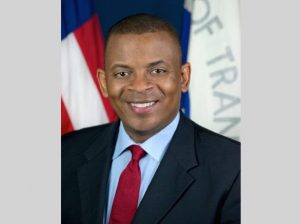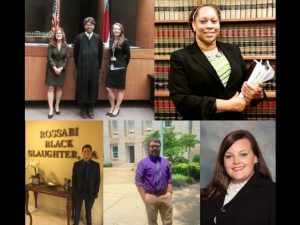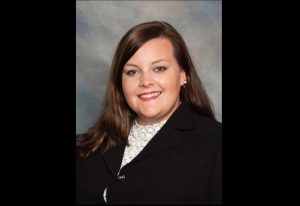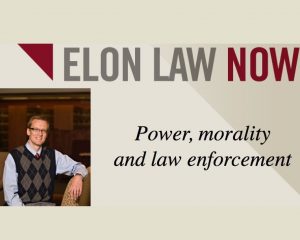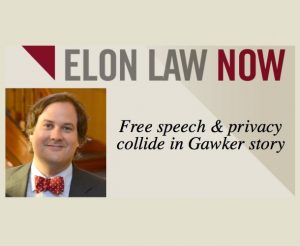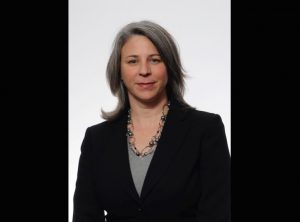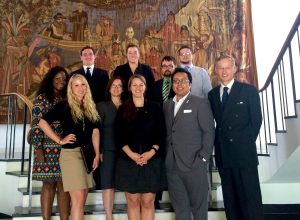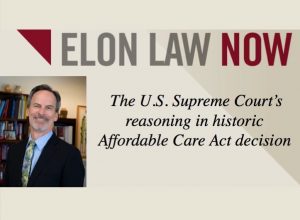Page 12 of 136
Seminar is at the forefront of immigration law
August 2, 2015
Elon Law’s fifth annual Immigration Law Seminar featured nationally prominent lawyers, scholars and federal agency leaders exploring cutting-edge issues in immigration law.
"Confidentiality creep" risks government abuse
August 2, 2015
The dangers of growing secrecy in government, for instance new North Carolina legislation to keep death penalty chemical compounds confidential from the public, forms the focus of Elon Law Professor David Levine's latest blog post for Princeton University's Center for Information Technology Policy (CITP).
Anthony Foxx to address Elon Law students
July 30, 2015
Law students in action
July 30, 2015
Elon spotlights the summer work experiences and professional insights of five law students as part of two-month weekly series.
Putting patients first
July 29, 2015
Elon Law student Courtney Pine, working with Public Citizen’s Global Access to Medicines Program this summer, coauthored an IP-Watch article that makes the case for laws that foster faster innovation in the development of biologics used to treat medical conditions.
Power, morality and law enforcement
July 28, 2015
In this week’s Elon Law Now faculty commentary series, Professor Mike Rich examines legal issues involved in the nationally prominent confrontation between Sandra Bland and Texas state trooper Brian Encina. In his commentary, Rich explores whether current law relating to law enforcement powers reflects society’s moral sense on matters of police conduct.
With Gawker story, free speech and privacy collide online
July 20, 2015
Elon Law Professor Enrique Armijo examines Gawker’s recent reporting and probes the line between free speech and privacy rights in an Elon Law Now commentary.
Catherine Dunham presents on U.S. Supreme Court & health care law at statewide symposium
July 17, 2015
Elon Law Professor Catherine Dunham presented July 16 at the "U.S. Supreme Court's Health Care Term in Review" symposium hosted by The North Carolina Society of Healthcare Attorneys, the Federal Bar Association and Parker Poe.
Elon Law students engage foreign diplomats in nation’s capital
July 17, 2015
Nine Elon Law students, accompanied by Professor Antonette Barilla, visited the Belgian and French embassies in Washington D.C. in July, participating by invitation in private question and answer sessions that explored topics of international law and policy with diplomats from both consulates.
Six Words
July 17, 2015
In this week’s Elon Law Now faculty commentary series, Professor of Law and Senior Scholar Steven Friedland examines the significance of the U.S Supreme Court’s reasoning in its historic Affordable Care Act decision in King v. Burwell.




